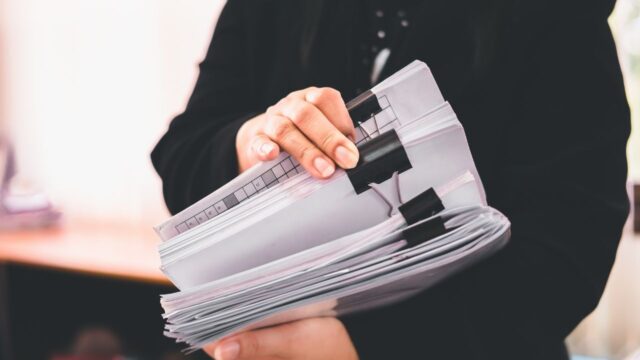
What is a Deed of Reconveyance and what does it do
A deed of reconveyance is a document that transfers ownership of property from one person to another. When a property is sold, the deed of reconveyance is used to transfer ownership from the seller to the buyer. It is also used to transfer ownership when a property is inherited or otherwise transferred as a gift. In addition, it can be used to rescind an earlier sale or transfer of property. For example, if a property is sold but the buyer subsequently defaults on their payments, the seller may use a deed of reconveyance to retake ownership of the property.
Similarly, if a property is inherited but the heir does not want it, they may use this to transfer ownership back to the original owner. Deeds of reconveyance are also sometimes used in real estate fraud cases. For example, someone may sell a property and then use a deed of reconveyance to retake ownership of the property without the buyer’s knowledge. This can leave the buyer responsible for paying the mortgage on a property they no longer own.
When is a Deed of Reconveyance used
The most common use for this type of deed is when a mortgage or loan has been paid off and the lender wants to transfer the ownership of the property back to the borrower. The deed of reconveyance must be signed by the person who is conveying the property and must be recorded with the county recorder’s office in order to be valid. In some states, the deed of reconveyance may also need to be Notarized. Once the deed has been recorded, the borrower will be the legal owner of the property.
How to get a Deed of Reconveyance
When a homeowner pays off their mortgage, they should receive a document from their lender called a Reconveyance or Satisfaction of Mortgage. This document releases the homeowner from their obligation to the lender and is evidence that the debt has been paid in full. The Reconveyance should be recorded with the county recorder’s office to provide notice to the world that the mortgage has been satisfied. If you have paid off your mortgage and have not received a Reconveyance, you should contact your lender to request one. Once you receive the Reconveyance, you will need to take it to the county recorder’s office along with the required recording fee. The recorder’s office will then record the document and return a copy to you for your records.
What happens if the party who holds the reconveyance deed doesn’t want to sign it
If the party who holds this doesn’t want to sign it, the consequences can be significant. Without the deed, the property cannot be transferred to the new owner. This could create a financial hardship for the new owner, as they will be responsible for paying property taxes on a property they don’t own. In addition, it could also lead to legal problems, as the new owner may not have clear title to the property. If the party who holds the reconveyance deed is unwilling to sign it, the best course of action is to try to negotiate with them. If that isn’t possible, then going to court may be the only way to get them to sign it. Ultimately, if the deed isn’t signed, it could create a lot of problems for everyone involved.
How to use a Deed of Reconveyance to clear your title
The deed of reconveyance should be recorded with the county recorder’s office, which will update the public record and clear your title. If you don’t receive a deed of reconveyance, you can request one from your lender. Once you have the deed, take it to the recorder’s office along with the recording fee. The recorder’s office will then record the deed and issue you a certified copy, which you should keep for your records. Recording the deed of reconveyance is an important step in ensuring that your property title is clear and up-to-date.
What to do if you have a problem with your Deed of Reconveyance
If you have a problem with your deed of reconveyance, the first step is to contact your loan servicer. They will be able to help you determine if there was an error in the reconveyance process. If so, they will work with you to correct the error and resend the deed. If you are still having problems, you can also contact your state’s department of housing and urban development. They can help you file a complaint and/or conduct an investigation. Finally, if you believe that your rights have been violated, you can contact an attorney to discuss your legal options. Deed of reconveyances are important documents, and it is important to ensure that they are handled correctly. By taking these steps, you can protect your rights and ensure that the process goes smoothly.
How to find a good real estate attorney who can help with your reconveyance deed
Here are some tips for finding a qualified reconveyance deed attorney:
First, you should ask for recommendations from friends, family, or colleagues who have purchased property in the past. They may be able to give you the name of a great reconveyance deed attorney who helped them with their own transaction.
Second, you can search online for attorneys who specialize in real estate law. This will allow you to read reviews and compare different attorneys before making a decision.
Third, once you have narrowed down your choices, you should schedule consultations with each of the attorneys on your list. This will give you an opportunity to ask questions and get to know them better before making a final decision.
Following these tips, you can be sure to find a qualified reconveyance deed attorney who can help you with your own property purchase.

































